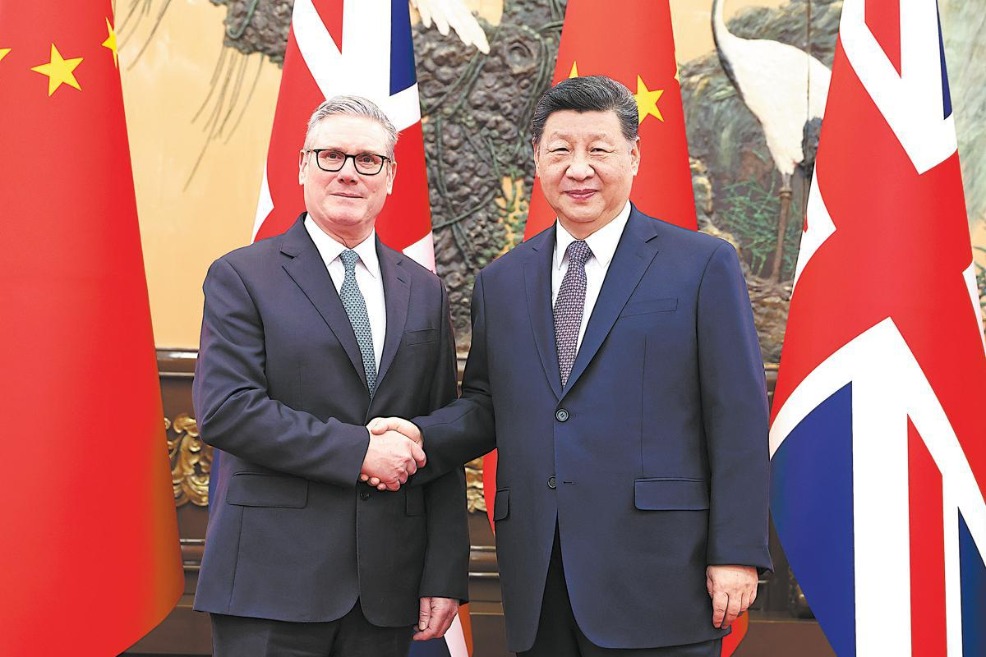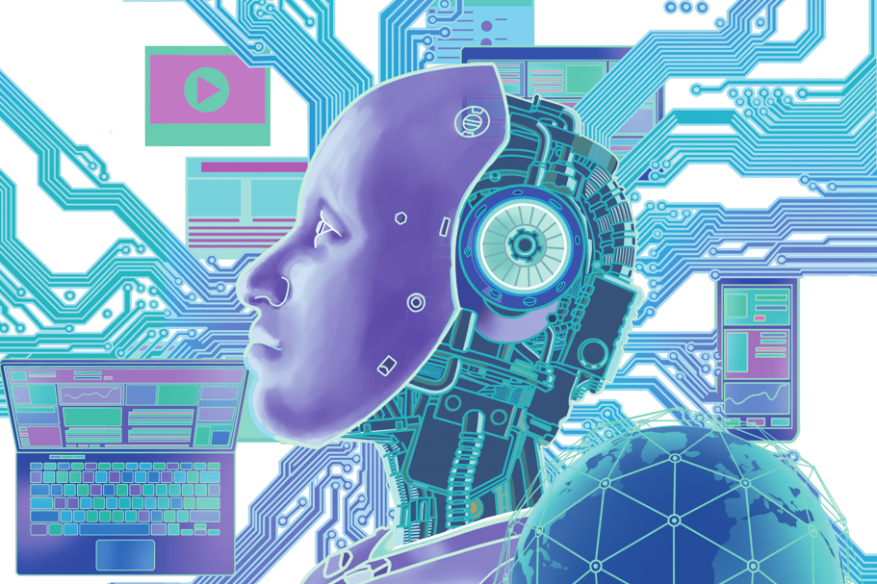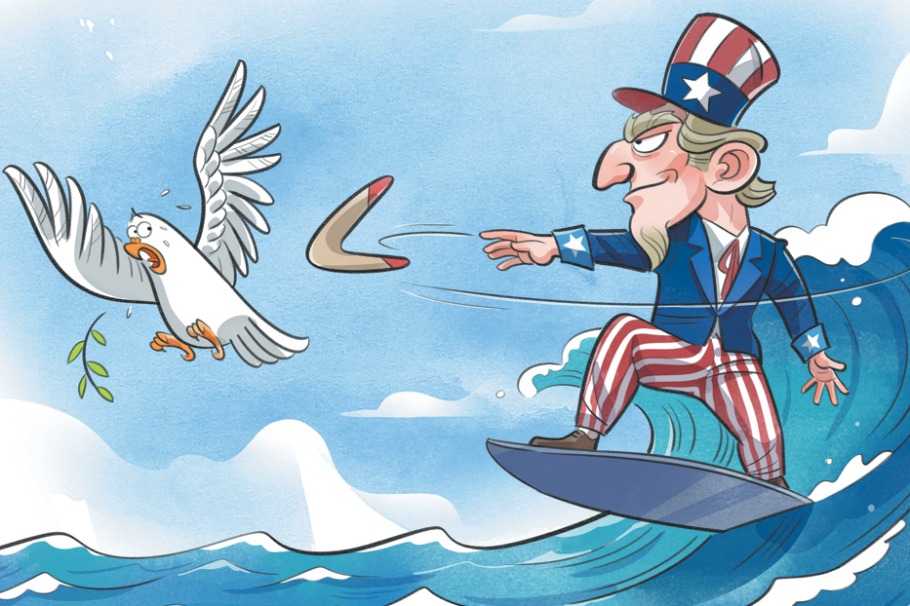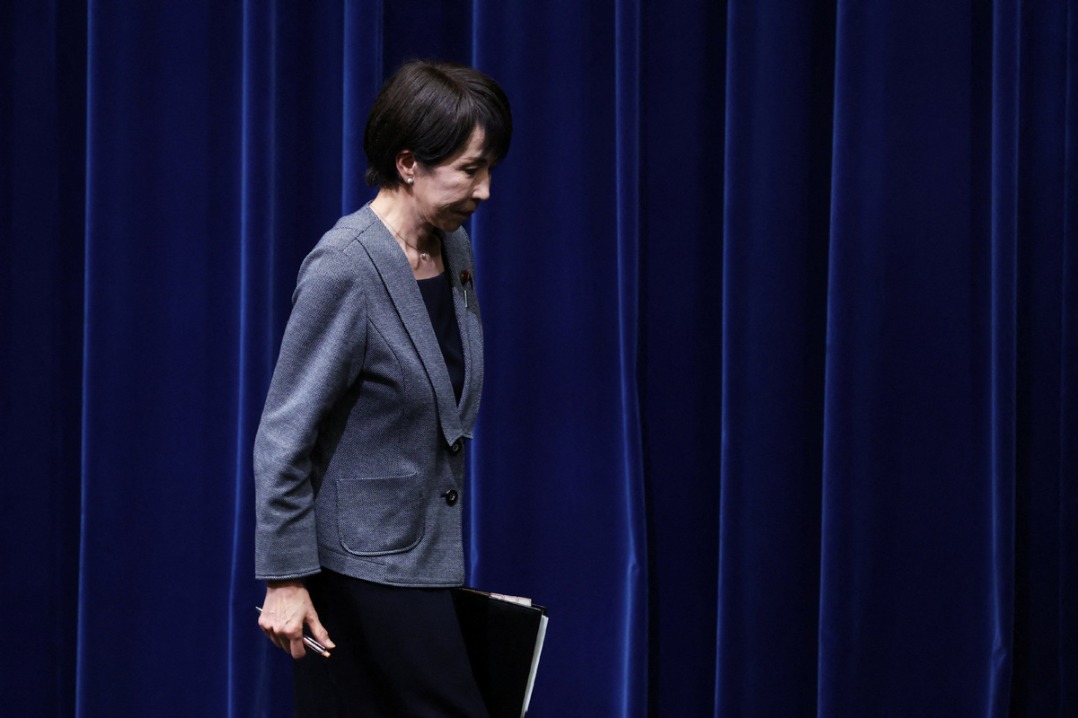All change

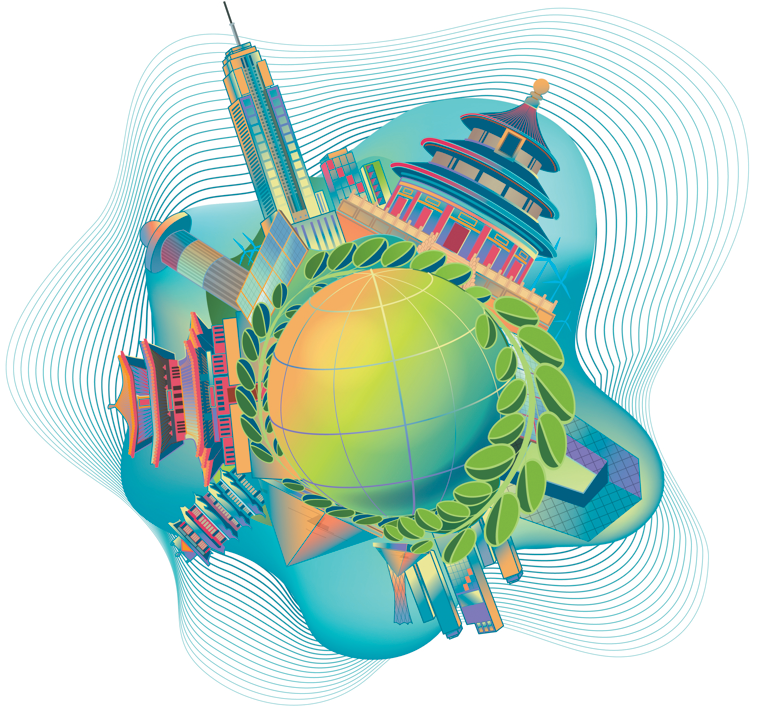
The world needs the new global economic order and China has already proposed the foundation for it
Editor's note: The world has undergone many changes and shocks in recent years. Enhanced dialogue between scholars from China and overseas is needed to build mutual understanding on many problems the world faces. For this purpose, the China Watch Institute of China Daily and the National Institute for Global Strategy, Chinese Academy of Social Sciences, jointly present this special column: The Global Strategic Dialogue, in which experts from China and abroad will offer insightful views, analysis and fresh perspectives on long-term strategic issues of global importance.
The international economic order is in crisis, and it is no longer suited to the new and emerging realities. This crisis can be broken down into three interrelated yet distinct components: the crisis of globalization and openness, the crisis of global economic institutions and the crisis of economic development models.
In terms of the crisis of globalization and openness, the ratio of global trade to global GDP peaked in 2008 and has never exceeded that level since. International capital flows have fallen sharply compared to the levels of the 2000s. Global value chains have stagnated.
The hyperglobalization of the 1990s and 2000s was a unique historical phenomenon, driven by the full integration of the largest developing countries — BRICS — into the global economy and the dramatic breakthroughs in communication technologies. Together, these factors made it possible to build a system of global value chains and an international division of labor — a system that enabled the relocation of Western production and the import of goods from developing countries with cheap labor and energy resources.
But now the world has changed. Wages in the industrial sector in a number of emerging economies, primarily in China, are approaching Western levels. China is transforming from the world's factory into one of the centers of global consumption. While the Chinese economy and Western economies were previously complementary, today they compete in most markets — often as both sellers and buyers.
The normal state of the international economic order today is a "world of regions" whose connections within them are significantly more intense than their connections with the outside world. This world of regions could be a sustainable model of globalization but under one necessary condition: if interactions between these regions remain open and governed by uniform rules. Unfortunately, this is not the case today. And this brings us to the second component of the crisis of the international economic order, a far more serious one — the crisis of international economic institutions — not only organizations, but also rules of the game.
The World Trade Organization is paralyzed, and the International Monetary Fund and the World Bank are unable to cope with the global debt problem and global development challenges. The fundamental problem with modern international economic institutions is that they simply do not correspond to today's economic realities and priorities. The world's center of economic gravity shifted from the Atlantic and Europe to Eurasia more than 20 years ago, yet the Bretton Woods institutions remain West-centric. They were created to maintain macroeconomic stability, reconstruction and economic recovery after World War II. Now they face different challenges: primarily redirecting financial flows to countries of the Global South for the purposes of equal, inclusive and green development. They are failing to fulfill this task.
However, these institutions are necessary. They are poorly functioning, but without them, things would be much worse. What is needed is institutional evolution, not revolution. New institutions and new rules will gradually appear. In some cases, they will develop alongside existing ones. The BRICS New Development Bank is not a replacement for the World Bank, but a parallel organization that is more flexible, more equitable in terms of voting power and rotation of presidencies, more focused on the needs of contemporary development and more open to innovation in development finance.
Take artificial intelligence as an example. Under the Brazilian presidency this year, BRICS made the first attempt to formulate principles for global regulation in the field of AI — crucial technology that will shape the future economy and society. In some cases, technological progress is facilitating new rules.
The development of digital payments in China and India is already making the use of payment cards — an area where Visa and Mastercard dominate — unnecessary in these countries. The development of central bank digital currencies and their gradual coordination will eventually make payments in national currencies as convenient as possible, weakening the need for the SWIFT system and the overall intermediary role of the dollar.
All these changes will occur slowly, but over time, they will form the new system of economic rules. Western countries will have to accept this.
The crisis of economic development models is perhaps the most complex and difficult to overcome. The Global South needs economic growth to solve its problems, but previous trajectories along which the Western world developed are unavailable, as these trajectories clearly lead beyond planetary ecological boundaries.
The shortcomings of economic growth based on maximizing GDP at the national level, profits at the corporate level and consumption at the individual level have long been known. However, until recently, there was a belief that these could be offset: this is the focus of the UN Sustainable Development Goals framework adopted until 2030, and at the corporate level it is reflected in ESG principles. Unfortunately, these efforts to offset the negative consequences of modern economic growth have achieved less than expected.
The year 2030 is a very important point by which changes must be underway. Instead of attempting to offset the drawbacks of current development path, humanity should strive to develop a new one based on different principles, maximizing not consumption, but well-being in all its complexity. This is especially important for developing countries, where such new economic growth models will be primarily implemented.
In this regard, the world has much to learn from China. This includes the idea of an ecological civilization, which China has successfully implemented, becoming the world leader in the development of green technologies in recent years. This also includes a set of practical financial and technological mechanisms implemented within the framework of the Belt and Road Initiative. Last but not least, this includes the four global initiatives proposed by President Xi Jinping — the Global Development Initiative, the Global Security Initiative, the Global Civilization Initiative and the Global Governance Initiative. All these ideas and the measures to implement them provide the foundation for a new vision of how the global economic order should develop.
The author is the head of the School of World Economy and the head of the Institute for Economics of Natural Resources and Climate Change at HSE University, Russia. The author contributed this article to China Watch, a think tank powered by China Daily.
The views do not necessarily reflect those of China Daily.
Contact the editor at editor@chinawatch.cn.





















